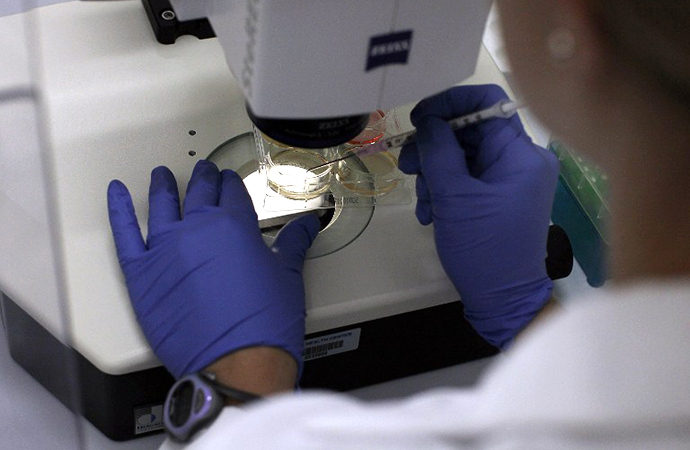Nearly 20 percent of US scientists considering work abroad due to poor funding

An overwhelming majority of US scientists are receiving less federal funding than they were three years ago and, consequently, many are considering continuing their research abroad, according to a new study by a group of top researchers.
A mere two per cent of recent poll respondents said academic institutions that employed them made up for the sudden shortfall in government support. Meanwhile, 68 per cent said they cannot afford to expand their research, 55 per cent have a colleague who lost their job or believes they soon will, and another 18 per cent have weighed whether to continue their scientific pursuits in other countries.
The study is just the latest to underscore deep concerns within the American scientific community, where years of budget cuts have been compounded by government sequestration to dry up needed funding. Led by the American Society for Biochemistry, the results will be made public within the next week.
Over 3,700 scientists in 50 states responded to the online questionnaire through June and July of this year. There, according to The Huffington Post, 80 per cent said they spend more time writing grants than in 2010, and 67 per cent said they received less grant money versus three years ago.
“I’m, now entering the job search phase. I want to do cancer drug discovery/target validation research,” said Alison Meyer, who earned a Ph.D. at Duke University. “However, due to the poor economy, companies tend to cut drug discovery programs in favor of increased marketing on the ‘sure thing’ drugs they already have for sale.”
“In addition, all of the jobs I have received call backs on
are postdoctoral positions, meaning my salary would not
change,” Meyer continued. “After 10 years of training, I’m
still not considered trained? Basically, the companies
know they can get away with paying someone a smaller salary for
the same amount of work…I’m stagnating.”

Paul Ney, a medical doctor at the New York Blood Center, explained how his laboratory has sought to identify the means red bloods cells use to optimize circulatory function and their role in childhood Parkinson’s disease.
“Unfortunately, due to a steady decline in funding for medical research, and paylines for new proposals consistently below 10 percent, this research has not yet received federal support,” he wrote, as quoted by The Huffington Post. “It is not realistic to expect private companies to assume the expense of our research, like ours, with a time to completion of more than a few years.”
Making many scientists’ jobs decidedly more difficult, they reported, is the sequester. The government budget cuts force federal employees to take unpaid time off and restrict the amount of spending they are allowed at the workplace.
The private sector has remained largely unaffected by the mandatory spending cuts, but state governments and the Pentagon have been bleeding employees – not to mention the American poor who have seen housing benefits, welfare, food stamps, and school funding depleted.
Making matters is the idea that further cuts may be necessary after the 2013 fiscal year.
Recent statistics from the Department of Defense reveal almost
3,400 civilian employees working for the military departed for
employment elsewhere. Scientists, researchers, health workers,
and other fields all saw professionals depart, in some cases for
the Department of Veteran Affairs, which is not affected by
sequestration.
Sylvia Matthews Burwell, the White House director, told USA Today uncertainty has become “one of the most damaging things we have right now.”














